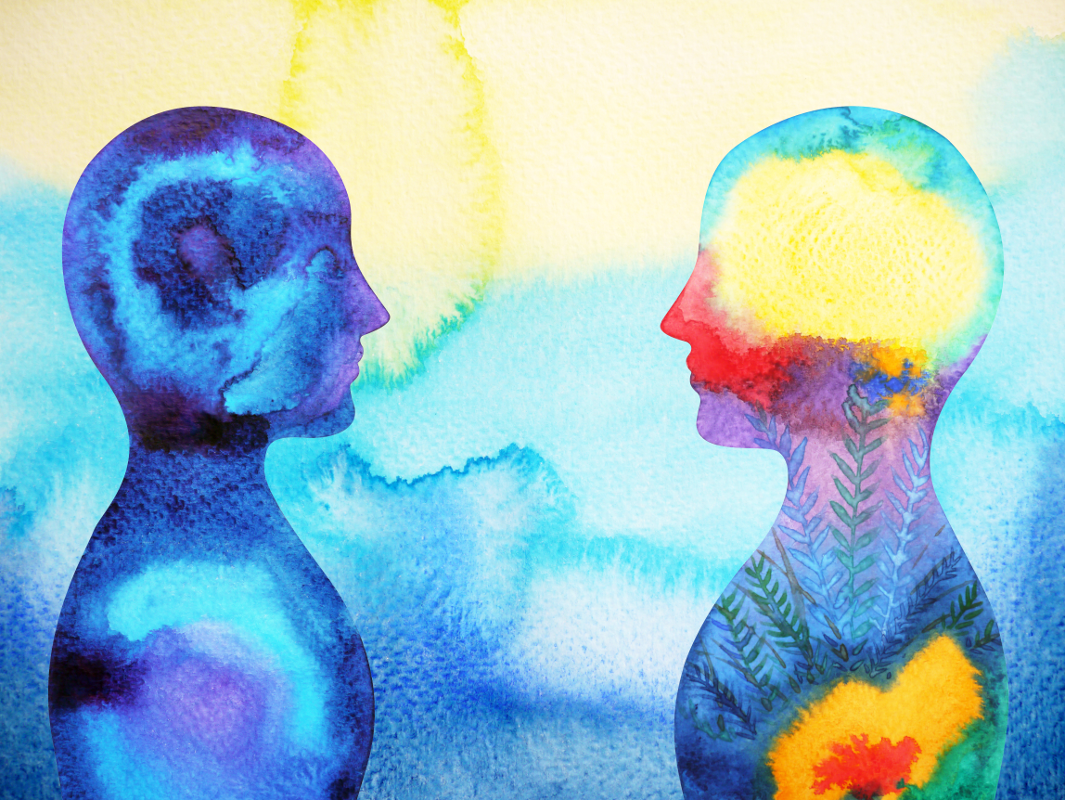Art and Culture
The Pragmatic Case for Understanding Neurodiversity
If you’re easily offended, it’s hard to understand the world.

I live in a Himalayan village. Today, I woke up to a mountain dog chewing my shoes and pulling the strings of my bamboo chair. He was glad I was up early. He wanted to take me out to show me his friends in the valley. I wasn’t mad, but this is not because dogs are cute. If a cute girl had done this, I wouldn’t have seen this as a charming eccentricity. I don’t overestimate the cognitive sophistication of dogs. I know this is stereotyping, but sometimes stereotyping can make us tolerant.
I’m an Aspie. Hill people are unusually tolerant of my social ineptitude, unlike in the cities where I grew up and worked. They attribute my social faux pas to cultural differences. We tolerate the “social ineptitude” of foreigners because we know cultural differences are a great source of misunderstanding. We expect them to become culturally assimilated, but we won’t set the bar too high if they’ve limitations. I don’t expect my dog to be good at writing anytime soon. Similarly, I think people shouldn’t expect me to be good at telling lies anytime soon.
James Damore, author of the memo which argued against Google’s diversity policies, was fired and vilified in the media for the “perpetuation of gender stereotypes”. Yet Damore is largely right. Engineering is male-dominated, partly because of biological differences. But his critics find his honest observations offensive. What is so bad about stereotyping? In some ways, stereotyping might lead to a world where kindness is possible. We are often cruel, because we don’t understand how different we all are. We need informed generalizations to understand people in all their complexity.
Damore suspects that he maybe on the autism spectrum. So I believe him when he says he just wanted to fix the problems with Google’s culture. He was surprised when they called to fire him. His critics find all this implausible. My point is not that Damore is an Aspie, but that we vastly underestimate human heterogeneity. If his critics held accurate stereotypes about the neurodivergent, they would have had a more nuanced understanding of his motives.
For much of my life, I didn’t know people were offended by disagreement. I missed this universal human experience without even realizing it. Introspection had failed me. When people expressed anger, I thought they were joking. People often deny that they are actually offended by mere disagreement. I believed them.
A few years back, I found out that I’m on the autism spectrum. I see this as a neurological difference, not a disorder per se. Aspies don’t mince their words. Psychologist Simon Baron-Cohen thinks this is a sign of low empathy and he is not alone. Baron-Cohen thinks “empathizing is about effortlessly putting yourself into another’s shoes, sensitively negotiating an interaction with another person so as not to hurt or offend them in any way, caring about another’s feelings.” Baron-Cohen is one of the pioneers in the field of autism research. But it doesn’t seem to have occurred to him that what Aspies have is a failure of introspection, not empathy.
Aspies have a blunt style of speech, because they mean well. If you’re nearly incapable of malice, it’s hard to imagine others may read malice into your remarks. It’s introspection which fails Aspies. Aspies excel at separating the idea and the person. Neurotypicals conflate ideological disagreement with personal conflict. So they find it exhausting when Aspies go too far in arguing their case. It is, again, lack of introspection that fails neurotypicals. The failure to understand each other is mutual. It’s more exhausting for Aspies to interpret indirect demands and defend ourselves against implicit accusations. Neurotypicals are unable to put themselves in our shoes and understand that disagreement isn’t personal. Does this mean neurotypicals have low cognitive empathy? They’re generally unable to be nice despite disagreements. Does this mean they have low affective empathy? Is it we who lack empathy?
Neurotypicals always think it’s about them. Tell them social media is not good for children, and they will say, “Don’t tell me how to raise my child.” Tell them intelligence is heritable, and they assume you just called them stupid. Tell them you disagree, and they think you just don’t like them. Tell them the gender salary gap is not because of patriarchy, and they will remove you from their Facebook friend list. Why do neurotypicals make a torture rack for themselves, and us, with their poor self-esteem? And they still think we don’t have empathy.
This is not surprising. We are all descended from paranoids. Always on the lookout for threats, our ancestors were eager to defend themselves against not only predators but accusations from people in our tribe. Even when neurotypical people disagree, they painstakingly avoid causing offence, because they fear being subject to negative accusations. Introspection helps people to not step on each other’s toes. They fear others may take generalizations personally, because they themselves take generalizations personally. But this is not a sign of remarkable empathy—this is a sign of a limited imagination.
It’s not rude to assume others can handle the truth. It’s not necessarily polite to modulate your tone, or give a compliment to soften the blow of what is to come after. Quite the contrary, it’s disrespectful to assume all people are so lacking in strength.
Aspies are not like the visually impaired who bump into lampposts for no fault of their own. It is perhaps more accurate to see Aspies as following better social norms than neurotypicals. Sociolinguist Deborah Tannen observes that only Westerners value direct speech, (even though the West doesn’t actually practice what it preaches). If the prosperous West values direct speech more, there should be a strong presumption in favor of directness. To borrow an analogy from the economist Bryan Caplan, trying too hard not to offend is a lot like standing up at a concert to see better. It is good for you, but not necessarily good for the world.
Baron-Cohen’s theorises that autism could be an extreme version of the male brain. Autistics are good at systemizing, at figuring out how things work. He suggests autism is linked to minds wired for science. This may explain why Aspies are so direct. You’re more likely to be direct if you care more about understanding reality than about what other people think. If you care too much about what others think, you’re going to be less likely to accept unpopular truths—communication styles are largely a reflection of cognitive styles.

It’s hardly surprising then, that Aspies and men are over-represented in engineering. People who are more interested in physical reality than in people flock to hard sciences, engineering and math. Not without some disapproval, Baron-Cohen observes that physicists are very arrogant, and bent on proving that they are right. But, if reality-oriented folk are more vocal about their beliefs, perhaps this is not such a bad thing?
If you’re easily offended, it’s hard to understand the world. To illustrate this, the economist Tyler Cowen offers the following advice: if you’re in a Sichuan restaurant, pretend you enjoy spicy food even if you don’t. If the waitstaff fears you can’t handle spicy food, they won’t bring you anything good—spicy or not. Conversations are a lot like this. If you’re easily offended, people are more likely to not be honest with you. You’ll probably never hear their most brilliant insights. You may never know how they actually think and feel. Clarity of thought is a choice between the cheap pleasure of feeling offended and the noble pleasure of being curious.
The neurodivergent are prone to violating social norms. But people are barely conscious of many social norms ’till somebody breaks them. Corporations often pay lip service to free expression, and James Damore took this baloney literally. All hell broke loose. People speak as if they value free expression, but they act as if they don’t. Damore didn’t violate any openly acknowledged norm. He violated norms which people are ashamed to say aloud.
Why are people so ashamed to say they fear disagreement? Isn’t it possible neurotypicals assume extreme honesty is a disease or a disorder? Isn’t it more humane to see Damore as an honest outlier than as a clueless autistic who needs a retraining in etiquette from a finishing school? We should be asking these questions that help us see where our blind spots lie.
Are laws that forbid gender and racial discrimination a result of the broadening of the circle of empathy? I doubt it. Unemployment is unusually high among Aspies, who are often male. They’re fired for quite trivial reasons, including asking their colleagues to be straightforward. They’re often quite good at their jobs. If empathy has been expanding gradually, it doesn’t make sense that it has leap-frogged over those who might be brilliant but gauche.
Neurotypicals think it’s necessary to discriminate against the neurodivergent to create psychologically safe spaces for themselves. This is one of the biggest moral issues of our time. The neurodivergent are everywhere. He is startup founder who said others couldn’t see what he could see, before he was fired for calling investors stupid. She is the young writer who was bullied and driven out by her boss and colleagues who thought she was too big for her britches. He is the young man whisked away to a mental asylum by his family eager to stigmatize him. He is the employee who cooperates with his manager, when all others refuse to. She is the editor who is demoted because she ran the risk of publishing something controversial. Who are we building safe spaces for again?
Libertarians want to live in a world without politics, but even a stateless society will have its political aspects. To mitigate political behavior, we need more directness, and a better understanding of neurodiversity. At present, indirect communication smothers every aspect of our lives.
Direct communication imposes huge personal costs, but this has to begin somewhere. When somebody breaks social norms, we can show empathy by listening calmly. People who defend true, unpopular positions may have high expressive needs, but this often hurts them more than it hurts others. Disagreeableness is the fountainhead of human progress. The triumph of the disagreeable over agreeable is what human progress is all about.






